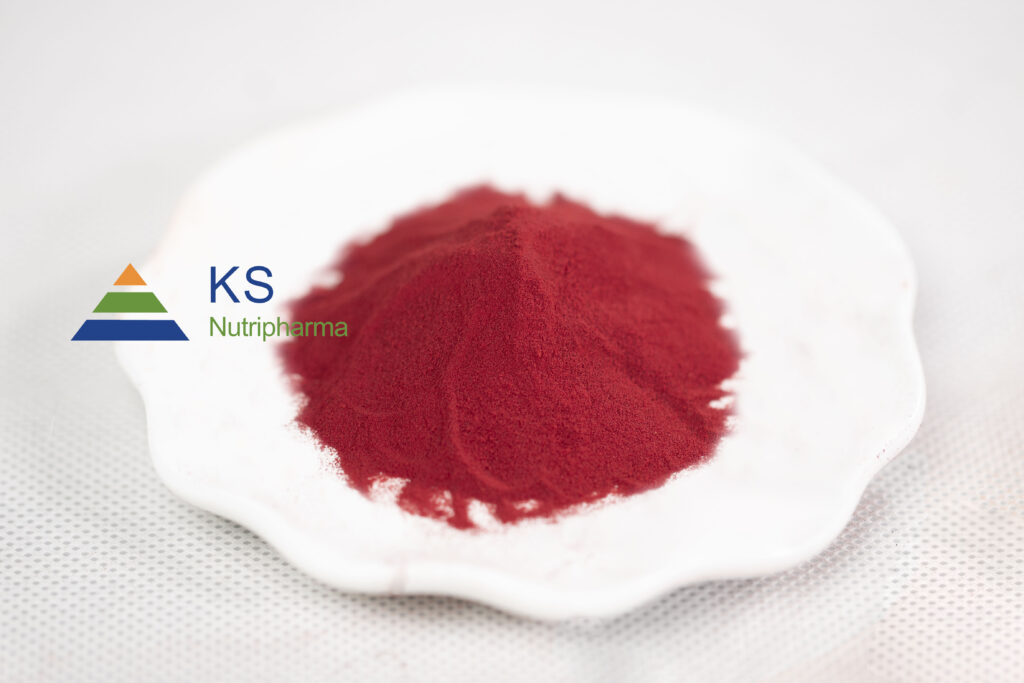What is the benefit of lycopene to males? Lycopene is a carotenoid in plants and the main pigment of mature tomatoes. It was first extracted and isolated from tomatoes. Lycopene is widely found in red fruits such as tomatoes, watermelons, grapefruit, etc. (except cherries and strawberries), and is considered one of the “strong antioxidants”, which can effectively protect the biofilm from the damage of oxygen free radicals through its super antioxidant capacity, relieve symptoms such as increased nocturia and dysuria caused by prostatic hyperplasia, and prevent male diseases such as prostatitis. Therefore, lycopene has lots of benefits for male’s health.

Q1: What is the benefit of lycopene to males? Is it good for prostate problems?
From 2002 to 2005, some scholars conducted a community health survey on 1466 men aged 30 to 79 in the Boston area of the United States and found that men who ingested more lycopene, β-carotene, total carotenoids, or vitamin A had a higher The incidence of lower urinary tract symptoms was reduced by 40% to 50%, and the most obvious result was lycopene intake. Another clinical trial was well complemented to elucidate the causal relationship between lycopene and the reduction of prostate-specific antigen levels and inhibition of benign prostatic hyperplasia. Therefore, lycopene can improve lower urinary tract symptoms in patients with benign prostatic hyperplasia, and can also reduce the level of prostate-specific antigen in patients with benign prostatic hyperplasia and prostate cancer, and delay disease progression. However, the preventive effect on benign prostatic hyperplasia and prostate cancer is still controversial.
Q2: Can lycopene improve impotence and premature ejaculation?
The current research shows that there is no direct relationship between lycopene and the improvement of sexual performance. The more value of lycopene is to achieve an antioxidant effect by inhibiting and scavenging free radicals. Now many businesses exaggerate the “magical effects” of lycopene – “anti-cancer”, “treatment of prostate diseases”, “improvement of male sexual function and fertility”, “care of female breasts and uterus”, etc. So far, lycopene products have not been certified by the US Food and Drug Administration for their “anti-cancer” and “treatment of benign prostatic hyperplasia or prostate cancer” functions.
Q3: Does lycopene help sperm?
Long-term use of lycopene can help improve sperm quality in men. The team compared sperm samples taken at the beginning and end of the trial and found that those men who took lycopene had nearly 40 percent more fast-swimming sperm, both in size and shape, than before the trial began. also improved.
Q4: How to get lycopene daily
The human body cannot manufacture lycopene itself and can only get it from the diet. However, lycopene is a fat-soluble substance. Eating tomatoes directly or just drinking tomato juice may not achieve the purpose of absorbing lycopene. Daily supplementation of lycopene can be done in the following two ways:
1. Add oil to cook. This method allows the digestive system to absorb more lycopene, so we often recommend eating fried tomatoes. In addition, the lycopene in tomato sauce, tomato puree or tomato paste is more easily absorbed by the body than in fresh tomatoes, due to the fact that not only the concentration of lycopene is increased in processed tomato products, but also the small amount of lipids present allows the absorption of lycopene. rate increases.
2.Take lycopene supplements.
Q5: Main food sources of lycopene
Lycopene is mainly found in foods such as tomatoes, watermelons, grapefruit and guava, and a small amount in fruits and vegetables such as carrots, pumpkins, plums, persimmons, peaches, mangoes, pomegranates, and grapes.
The amount of lycopene in tomatoes varies with variety and maturity. The higher the maturity, the higher its lycopene content and vice versa. The lycopene content of ripe tomatoes is 4.4mg/100g, and the content of raw tomatoes is 2.57mg/100g.
Q6: Side effects of Lycopene
The overdose side effect currently found in the population is mainly orange skin coloration, which gradually disappears after ingestion is stopped, so the US Food and Nutrition Board believes that lycopene has a reversible harmless effect. The recommended dose of KS Nutripharma is 18mg/d and the tolerable maximum intake is 70mg/d.
The important benefit of lycopene to males because it’s 100% safety and natural, KS Nutripharma has top quality and complete certificates in the US warehouses, welcome to contact us if you are looking for this goods!
Related Video: KS Tomato extract

